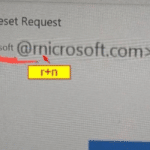Small businesses rely on IT networks to operate, communicate, and store data. Network issues can disrupt activities, reduce productivity, and create security risks. IT network monitoring addresses these challenges by running systems smoothly, reducing downtime, and detecting threats early.
This guide covers the benefits of IT network monitoring for small businesses, answers common questions, and offers tips for selecting the best approach.
IT network monitoring is continuously observing and analysing a network's performance, health, and security. It involves tracking devices, servers, applications, and connections within the network, detecting performance issues, and ensuring security measures are in place. Network monitoring is an essential support system for small businesses, offering real-time insights that help prevent costly disruptions.

IT network monitoring provides small businesses with essential tools to maintain network reliability, enhance security, and support smooth, uninterrupted operations. It also helps to optimise resources and reduce unexpected costs and below is list of the best benefits you can receive along with the monitoring capabilities.
Small businesses often assume they aren’t prime targets for cyber threats, but statistics say otherwise. Around 43% of cyber attacks target small businesses, many of whom lack adequate defenses. Network monitoring helps small businesses stay vigilant, identifying unusual traffic or suspicious activity early, potentially averting costly data breaches.
For small businesses, downtime directly affects profitability and has a negative impact on business operations. Network monitoring detects potential issues like hardware failures or high bandwidth usage before they disrupt service, allowing swift action to keep systems up and running smoothly.
Consistent entire network monitoring optimises the performance of your network, applications and devices. By identifying areas of congestion or underperforming devices, IT teams can fine-tune network configurations, ensuring better performance and a more efficient workflow and insights into network security.
Network monitoring allows small businesses to allocate resources more effectively by identifying trends and potential upgrades. Rather than reacting to emergencies, monitoring promotes proactive planning, reducing long-term IT expenses.
Network monitoring can identify hardware failures, bandwidth congestion, latency issues, unusual data flow, and unauthorised access attempts, among other potential problems.
Yes, network monitoring can help ensure your business meets industry compliance requirements by maintaining security standards and providing documentation of network activity.
While larger businesses may benefit from having a dedicated IT team, small to medium-sized enterprises (SMEs) can often rely on managed IT service providers to handle network monitoring.
